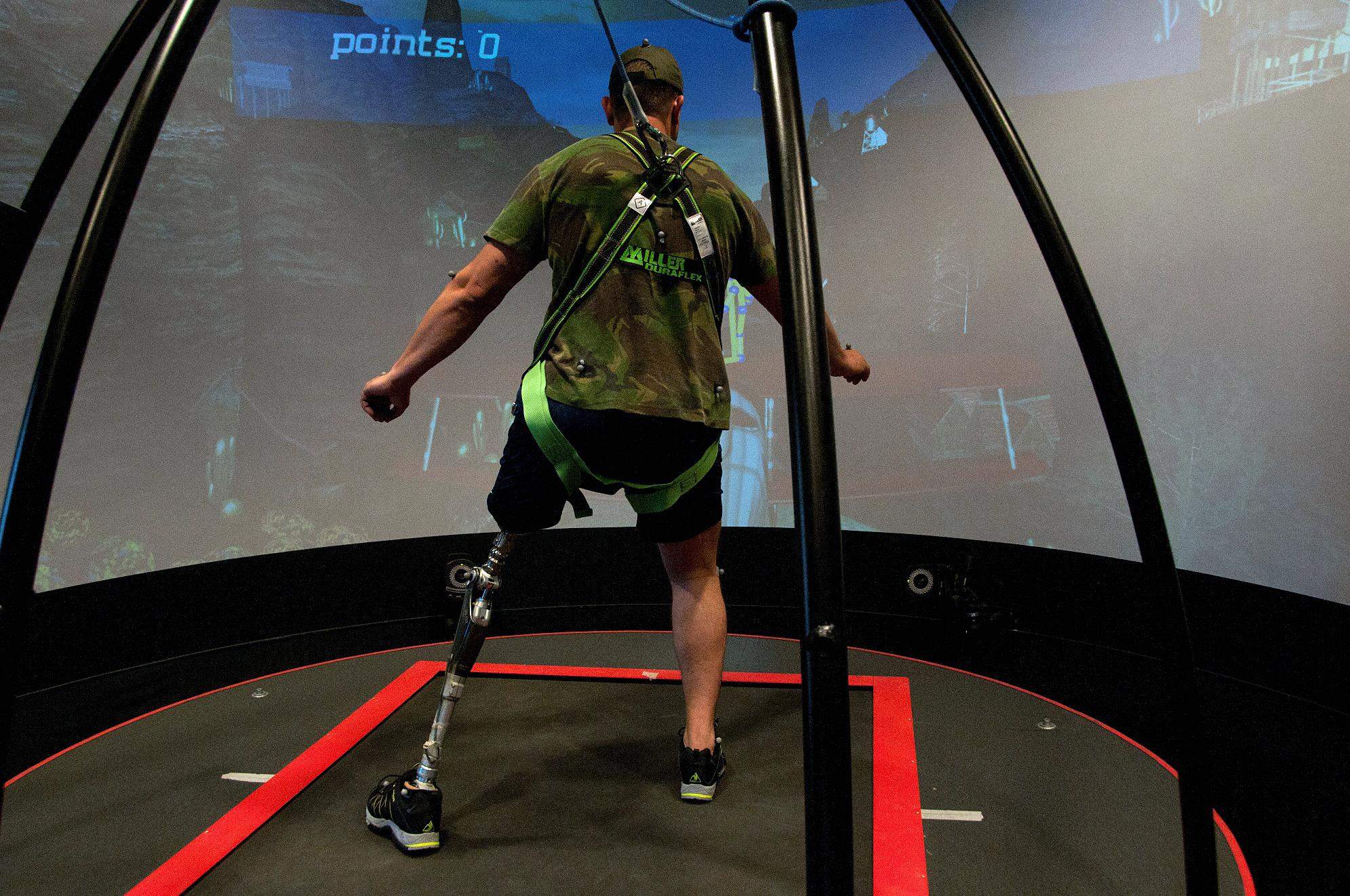CAREN, developed at the University of South Florida, helps those with limb loss and prosthetics improve basic function, symmetry and walking efficiency. It is also a tool for researchers to study ways to improve mobility and balance.
Wearing a safety harness and walking on a treadmill in the room-sized system, participants of a recent study engaged in audio-visual balance games, explored virtual environments, and used an avatar to simulate activities fro on a surround screen.
CAREN’s interactive games allow for physical rehabilitation, combined with cognitive tasks, such as requiring someone to dig for objects in a virtual world while still walking on a treadmill. Distraction gait training could help balance, mobility and coordination in PTSD, traumatic brain injury or stroke patients.
Boat driving, walking in a combat environment or mountain hiking can be simulated. Visual tracking technology allows researchers to evaluate a patient’s gait or performance in real time, and immediately adjust the system to customize the rehab/training process.
